

SIXTH FORM PROSPECTUS


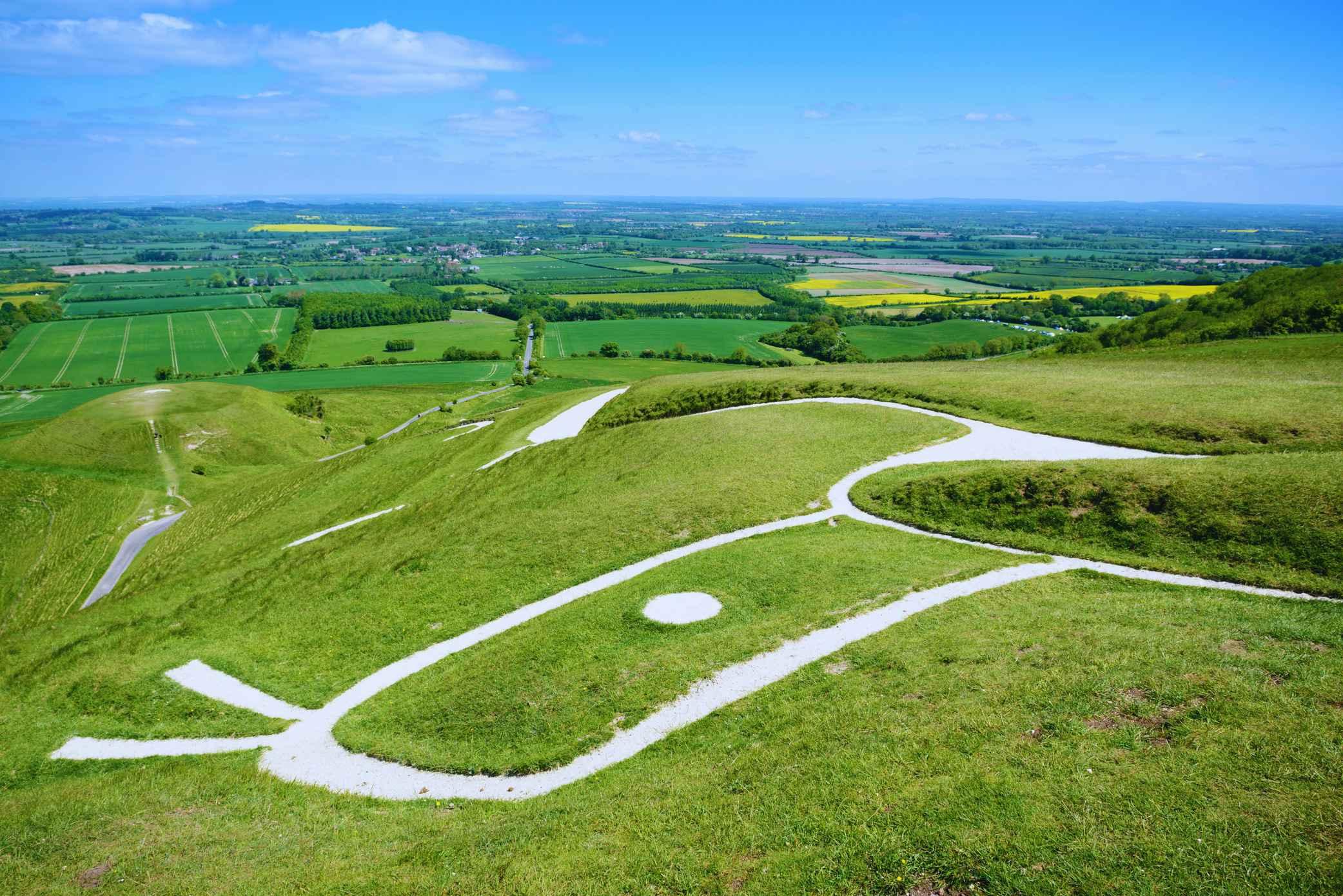

Melksham Oak Sixth Form college is proud to be part of The White Horse Federation Multi-Academy Trust
Welcome to The White Horse Federation | Inspiring lives
WELCOME
Welcome to the Melksham Oak Sixth Form prospectus This prospectus provides you with information about our sixth form, the courses available, and the support students will get in the next stage of their education at Melksham Oak Community School
I am delighted to welcome you to Melksham oak Community School Sixth Form, where we offer a range of courses to meet the needs of all learners These include:
• A-level Courses
• Level 3 Vocational Courses, Such as BTECs and Cambridge Technical Awards
Our sixth form open evenings are an opportunity for prospective students and parents to meet current students studying the courses, as well as the subject teachers, to gain an insight into the courses and opportunities available
As part of our commitment to supporting students, we interview them before they begin their sixth form studies to ensure they take appropriate courses that match their aspirations and ambitions and go on to achieve their best All prospective sixth form students also attend a two-day induction programme to get them up to speed with the demands and expectations of studying level 3 qualifications
I am immensely proud of the achievements of our sixth formers and the contribution they make to the life of the school and community As a school, our commitment to you as a student is that we will provide you with inspiring high-quality lessons and enthusiastic subject-specialist teachers We will also ensure you have exciting enrichment and personal development opportunities to help you achieve your potential and to grow the wider skills and knowledge that employers, universities and other training providers value Whatever your ambitions are, we will give you bespoke support - for example in applying to the most prestigious universities in the country or securing a place on a competitive higher apprenticeship programme I sincerely hope that you will choose to join us for your sixth form studies, and look forward to you becoming part of our vibrant and inclusive sixth form community
We look forward to meeting you over the coming year and welcoming you to our sixth form
Mr David Cooper
Executive Headteacher
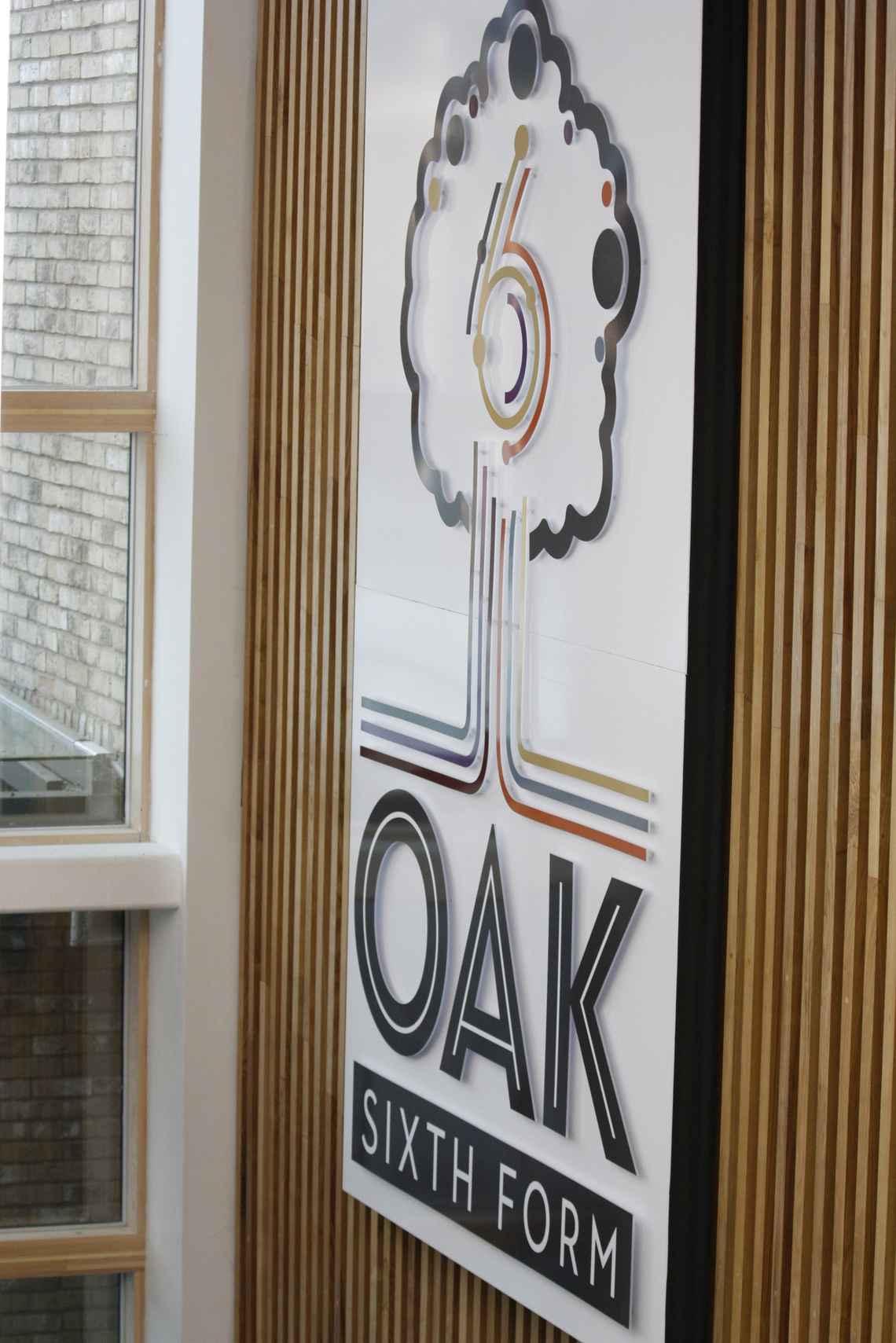
“PLACING
YOU AT THE CENTRE OF EVERYTHING WE DO.”
Our Core Values RESPECT
Have AMBITION Take PRIDE
ourselves, each other, our school, and our community. to achieve
great things.
in
everything we do.
SIXTH
FORM AT MELKSHAM OAK COMMUNITY SCHOOL: THE RIGHT CHOICE FOR YOU
OUR ETHOS
At Melksham Oak Sixth Form, we firmly believe that we can provide the ideal environment for the next stage of your education We have a friendly and vibrant atmosphere where we build positive and supportive relationships with all our students Our teaching staff provide outstanding teaching and learning for all our sixth form learners who go on to achieve excellent results Their depth of knowledge and subject expertise allows all our students to flourish and achieve their full potential within a challenging but caring environment We look to raise the aspirations and ambitions of all our students so they feel they can achieve their very best
Two years of study in the sixth form is great preparation not only in academic terms, but also in growing awareness of oneself in a supportive, educational environment We are committed to doing our best for you both intellectually and socially therefore we have rigorous academic demands and expect you to do your best to meet your academic potential We are aware, however, of the need to provide a whole variety of other activities and opportunities that will develop your leadership skills and help you to contribute to both the school and the broader local community
Our students’ well-being is at the forefront of our everyday practice and we pride ourselves on providing an excellent pastoral support network Our sixth form team is highly experienced and works hard to support every individual in becoming resilient and confident We also have access to expert specialist support and guidance through our pastoral manager and her network
Inclusivity is fundamental to us and something we pride ourselves on at Melksham Oak Our belief is that education is not just about academic success but also preparing young people to be well-informed citizens of the future who respect themselves, one another, their local communities, and the wider world Each student is treated as an individual, and we promote tolerance, empathy, and kindness to all
All students will find there is a difference in their relationship with staff as they work within the sixth form Most are pleasantly surprised to find working in smaller groups, consisting of like-minded students, leads to a more relaxed atmosphere and that there is a more adult approach to learning and a greater mutual respect Students and staff have the same aim and work together to reach their common objective to maximise the potential of every student
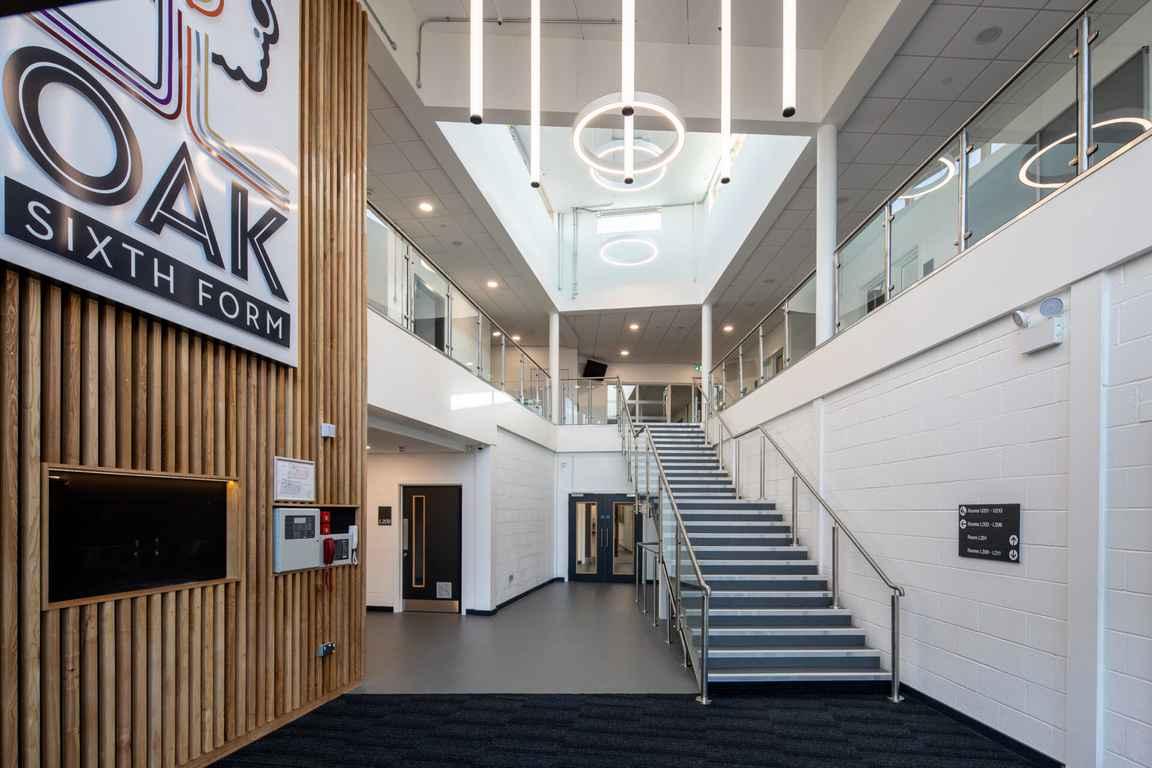
A SHARED AMBITION FOR EXCELLENCE
At The Oak and Devizes School, it is our ambition to offer a wide variety of courses for our Sixth Form students One of the ways we achieve this is through our successful partnership between the two schools This collaboration allows us to provide an exceptional range of subjects, delivered in the most suitable learning environments
We are proud to have a highly experienced team of teachers across both A Level and BTEC courses, whose expertise has consistently led to excellent results
At both schools, students benefit from high-quality teaching, outstanding pastoral care, and dedicated teams committed to helping every individual achieve their goals With a proven track record of success in UCAS and apprenticeship applications, we take pride in supporting our students towards their chosen next steps
Our shared facilities including gyms, cafés, music practice rooms, and independent study areas ensure students have everything they need to thrive both academically and personally
“IT’S GREAT THAT WE HAVE SO MANY COURSE OPTIONS ACROSS BOTH SCHOOLS. THE BUS RIDES CAN BE FUN TOO YOU GET TO KNOW YOUR TRAVEL GROUP AND HAVE SOME REALLY INTERESTING CONVERSATIONS!”
“IT’S BEEN BRILLIANT FOR MY CONFIDENCE. I’VE MADE NEW FRIENDS IN MY CLASSES AT THE OTHER SCHOOL, AND IT’S GIVEN ME A REAL SENSE OF INDEPENDENCE.”
We believe this flexible approach offers the best opportunities for students at both schools and it’s what makes our Sixth Form partnership truly unique in the area
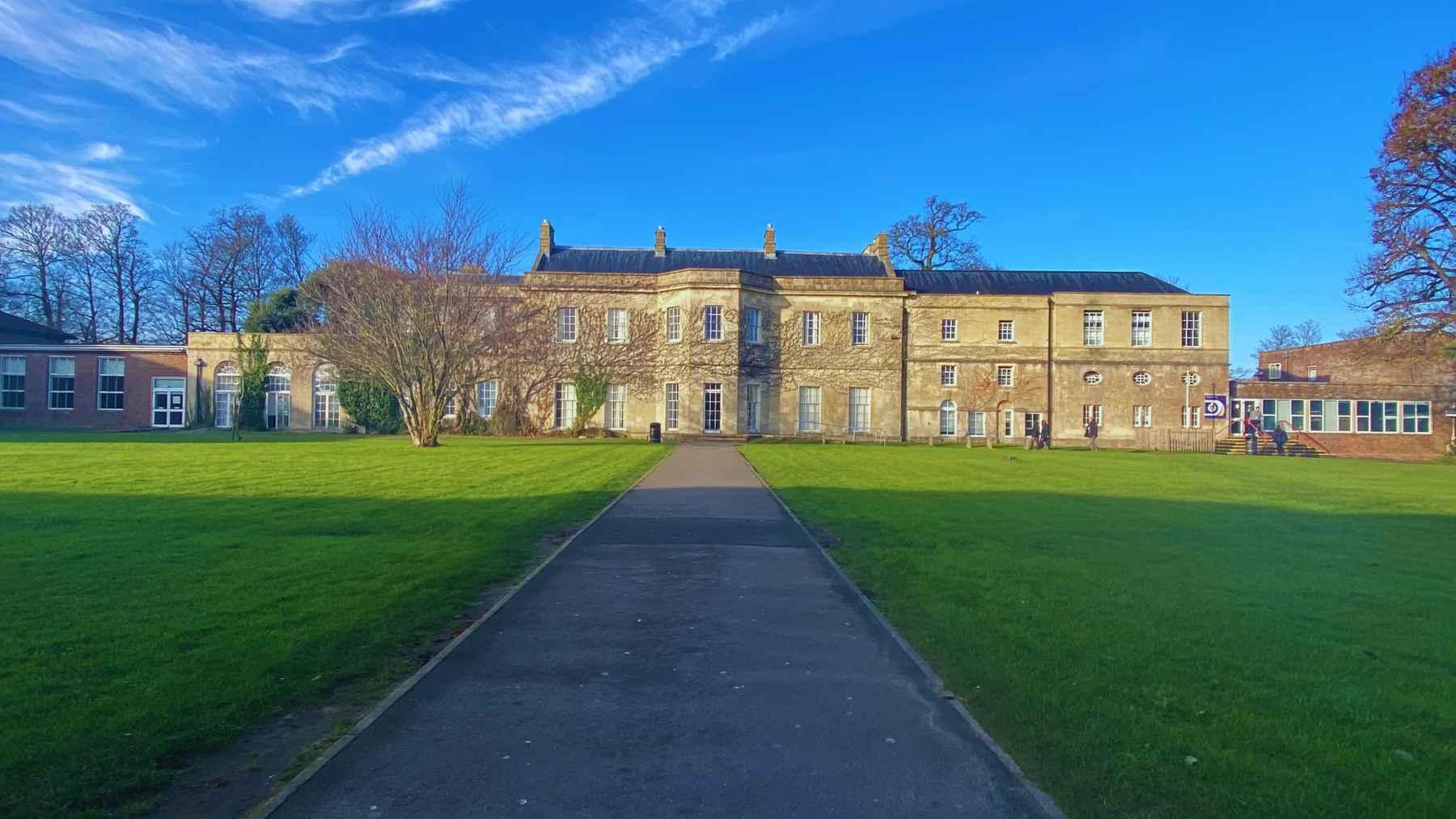
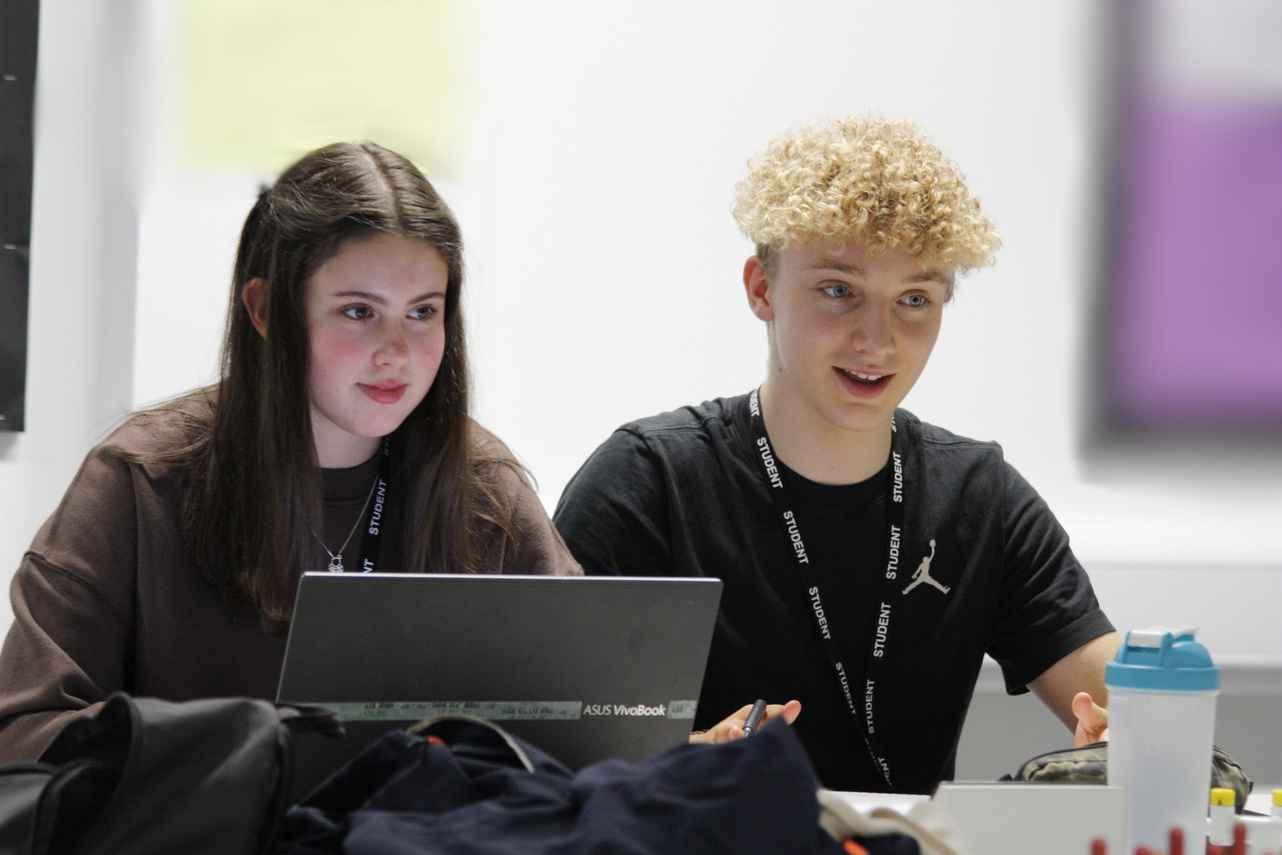
SIXTH FORM ENTRY: THE KEY EVENTS
AUTUMN TERM
Students need to research the courses and options available so they are in a position to make informed choices School Mock Exam grades will be used as a starting point for guidance on entry requirements for different pathways Support is available from year 11 form tutors, subject staff and our Careers Leader
It is important that all the potential sources of information and guidance are used effectively and that students are thorough in their research
JANUARY
Apply using the application form, which should be completed and returned online by the end of January
FEBRUARY/MARCH
All students who apply for a place in the sixth form will be interviewed by a member of the sixth form team or a senior member of staff Areas for discussion during the interview will include predicted grades, subject choices, career aspirations, and interests Follow-up interviews and support will be provided for individuals as required, and subject choices will be finalised during this process Offers will be made on the basis of the students predicted grades being in line with the entry requirements for each of the courses
MAY/JUNE
The examination season! Much will depend upon the outcome of examinations as far as students’ future options are concerned Please remember that the grades you get at GCSE will determine which level 3 courses you can take in year 12
JULY
We require all prospective students to attend our sixth form induction event This focuses on developing the students’ skills in time management, leadership, team work, and resilience, as well as their advanced study skills We also explore the transition between year 11 and year 12, discuss the increased levels of independence and self-motivation required during this transition, and give students the opportunity to meet their new tutor group
AUGUST
Students will receive their GCSE results in mid-August All students must enrol with the Sixth Form team to confirm they have the entry requirements for their chosen courses or to discuss any changes to their choices before the start of term in September Teaching staff, Careers Leader and senior staff will be available to advise and support students and parents/guardians, if required, at this time
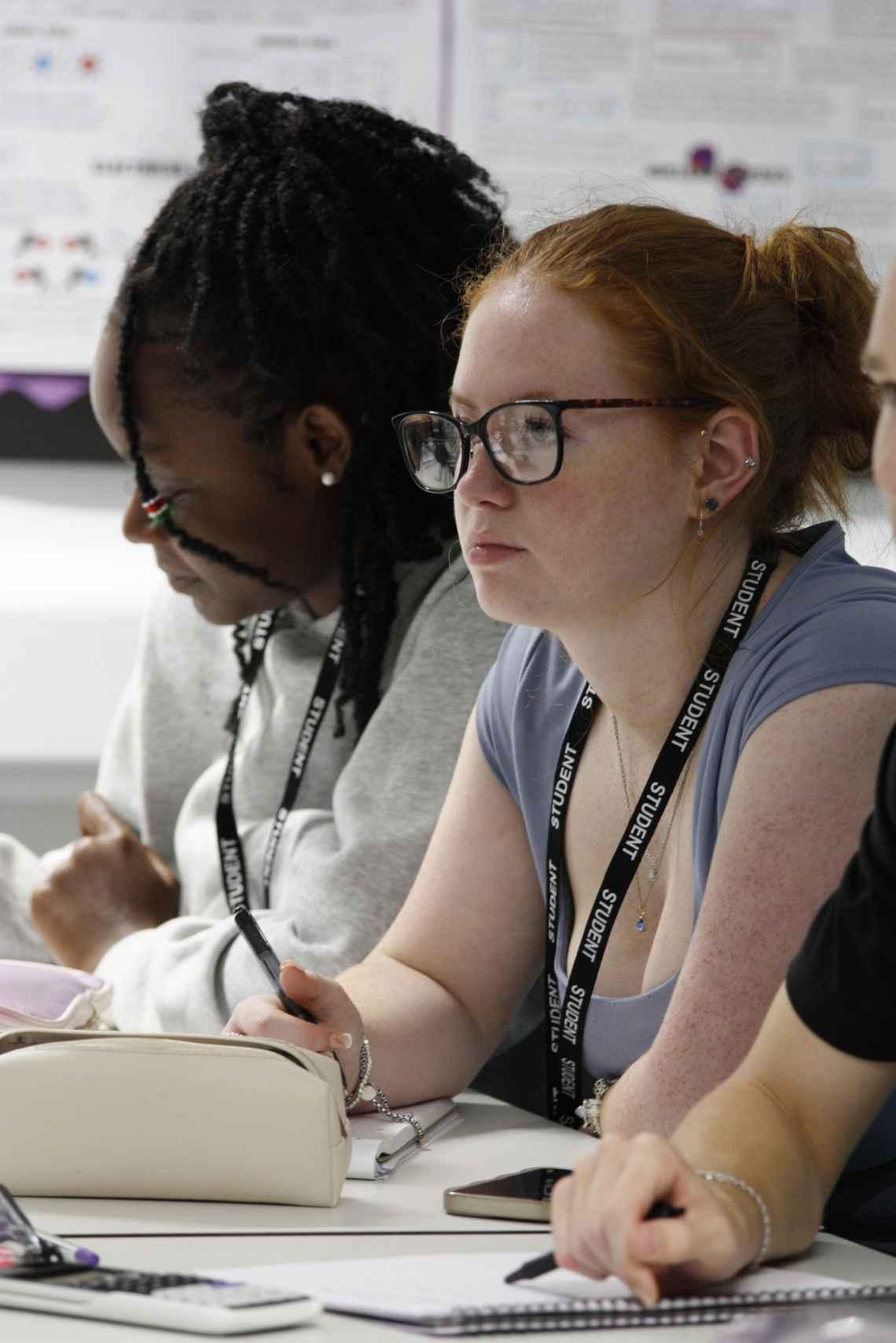
SEPTEMBER
At the beginning of the September term students meet their tutor group and tutor who is the first level of pastoral support throughout their time in Sixth Form The early weeks of term also provide the opportunity for students to finalise their course choices and change subjects if necessary, subject to available places
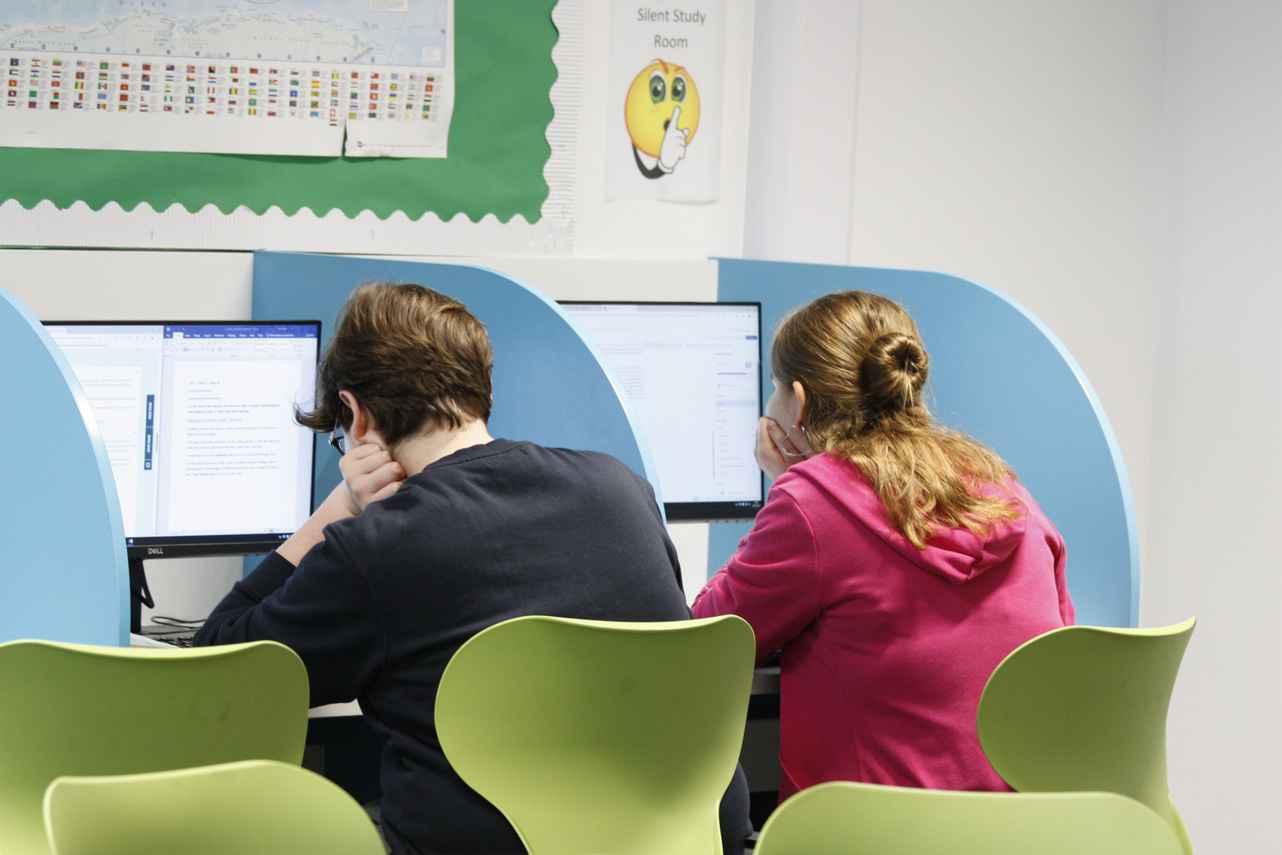
OUR SIXTH FORM CURRICULUM
Every year, our aim is to provide courses that meet the needs and interests of our students
The courses we offer fall into two categories:
LEVEL 3 A-LEVEL COURSES
A Levels are available in a range of subjects; ones that students will have previously studied but also subjects that will be new to all students A Levels are primarily assessed by 2 final exam papers with very limited coursework in some subject areas
LEVEL 3 VOCATIONAL COURSES
The Level 3 BTEC and Cambridge Technical Awards cover a range of subject areas These are assessed mainly by coursework completed throughout the two years of study with a much smaller exam component in comparison to A Level They are equivalent to A Level for UCAS points and progression onto Higher Education or apprenticeships
SUPPORT TO MAKE THE RIGHT DECISIONS
All students who apply will have an interview with a senior member of staff to discuss their suitability for sixth form and their aspirations for the next two years As part of the interview process, we will discuss the combination of subjects and courses with students in light of their target grades and aspirations Final agreement about courses to be studied in September will take place after the results are published in August, and support is available to help with this.
ENTRY REQUIREMENTS
As a basic requirement for entry into the sixth form, students will be required to have five GCSEs grade 4 or above (or equivalent) including GCSE grade 4 in both Maths and English Language Each course will then have specific entry requirements if the subject has been studied at GCSE level. Any offer to join the Sixth Form is made subject to students achieving the required entry grades Entry into the Sixth Form in September is only confirmed once GCSE results are published in August
BEYOND THE CLASSROOM
Alongside this selection of academic courses, and the personal development programme, we encourage all our students to get involved in the school and wider community Students will be asked to sign up to extra-curricular activities from a range of activities on offer such as: EPQ (Extended Project Qualification), sports, peer mentoring, Duke of Edinburgh, learning mentors, library support, school ambassadors, house leadership and music activities

COURSE INFORMATION
ART & DESIGN / PHOTOGRAPHY
APPLIED SCIENCE
BUSINESS STUDIES BTEC NATIONAL DIPLOMA
BIOLOGY
CHEMISTRY
CREATIVE MEDIA BTEC**
CRIMINOLOGY LEVEL 3 APPLIED DIPLOMA
ECONOMICS
ENGLISH LANGUAGE
ENGLISH LITERATURE
EPQ
FRENCH
FURTHER MATHEMATICS
GEOGRAPHY
HEALTH & SOCIAL CARE LEVEL 3 CAMBRIDGE TECH
HISTORY
LAW
MATHEMATICS
MEDIA STUDIES
MUSIC BTEC
PERFORMING ARTS LEVEL 3 CAMBRIDGE TECH
PHYSICS
POLITICS
PSYCHOLOGY
RELIGIOUS STUDIES
SOCIOLOGY
SPANISH
SPORT LEVEL 3 CAMBRIDGE TECHNICAL
HOW TO APPLY
ENTRY REQUIREMENTS
SEE THE TABLE BELOW WITH THE INDIVIDUAL COURSE ENTRY REQUIREMENTS:
FROM YOUR CURRENT PROGRESS A MOCK GRADE WORKS OUT WHETHER YOU ARE ON TRACK TO ACHIEVE THE MINIMUM ENTRY REQUIREMENTS.
FOR A'LEVELS YOU WILL NEED A MINIMUM OF GRADE 5 IN EITHER ENGLISH GCSE AND A GRADE 6 IN THE SUBJECT YOU WISH TO STUDY. PLEASE SEE THE TABLE FOR MORE SPECIFIC GUIDELINES.
CAREFULLY CHECK THE SUBJECT REQUIREMENTS AS WELL, AS THEY MAY BE HIGHER THAN
Component 1: Personal Investigation
For most of Year 12, students work on increasing their technical skills through projects Students enhance their knowledge of what a comprehensive project contains and what the assessment objectives ask for The Personal Investigation Project begins in Term 6 Year 12
Component 2:
From the beginning of February in Year 13, students select from the externally set assignment, 1 from stimuli set by the exam board and respond with in-depth investigation fulfilling the assessment objectives This culminates with a 15 hour supervised test
Why study Art, Craft & Design or photography?
What are the entry requirements?
Enjoyment, enthusiasm and an appreciation for the world around you Technical ability and a willingness to make a commitment to work regularly outside of lesson times both in school and at home taking ownership of projects The course is open to students who have no prior experience at GCSE level. But, you will need to put together a recent portfolio of key pieces, providing evidence of ability and interest and complete a task set pre-application if you are interested
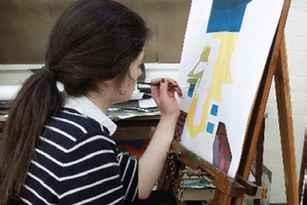



Links with the Industry
As the qualification is designed in close collaboration with industry and is supported by the Sector Skills Council (SSC) for the sector, Cogent A range of professional organisations/employers in the sector have also confirmed their support for the course and it is a highly-respected route for those who wish to move into employment in the sector, either directly or following further study
Higher Education
The Level 3 in Applied Science also provides a well-established route into a variety of specialist Higher Education (HE) courses in this sector and beyond A number of Universities have confirmed that this this qualification in Applied Science fulfils their entry requirements when achieved alongside other qualifications.
BUSINESS STUDIES
PEARSON’S NATIONAL EXTENDED CERTIFICATE
Assessment
Mandatory content (83%) External assessment (58%)
Career pathways:
This course is worth the equivalent of two A levels and offers students the opportunity to study further business-related courses at university or college plus is popular with those looking at the apprenticeship route or those going straight into employment

A REALLY GOOD COURSE THAT HAS ALLOWED ME TO DEVELOP A MUCH DEEPER UNDERSTANDING OF HOW THE WORLD OF BUSINESS WORKS FROM SMALL INDEPENDENTS TO LARGE MULTINATIONALS.”
I AM CONSTANTLY SURPRISED AT THE BREADTH OF STUDY IN A-LEVEL BIOLOGY. NO TOPIC LASTS TOO LONG AND THE SUBJECT MATTER IS VERY DIVERSE...


A-level units are external exams There are 3, 2 hour papers The final paper 3 has synoptic content (from the other 8 units) and an essay question
ation There will be a awarded a pass in be questions about
ems d is very long and y, Microbiology, Pharmacology,
CHEMISTRY A-LEVEL
Assessment methods
A-level: Papers 1 & 2: Paper 1: Physical and inorganic chemistry plus practical skills Paper 2: Physical and organic chemistry plus practical skills 2 hours each paper (35% of A-level per paper) 105 marks / 105 marks short/long answer questions
A-level: Paper 3 Any content plus practical skills 2 hours (30% of Alevel) 90 marks / 40 marks practical skills/data analysis / 40 marks testing across the syllabus / 30 marks multiple choice A practical endorsement is internally assessed and reported separately
Why study Chemistry?
Chemistry is the study of matter, its properties, how and why substances combine or separate to form other substances, and how substances interact with energy Every material that we know of is made up of matter - even our own bodies Chemistry is involved in everything we do, from growing and cooking food to cleaning our homes and bodies to launching a space shuttle Chemistry is one of the physical sciences that help us to describe and explain our world Chemistry is sometimes called “the central science” because it is so important to other fields of science
Where could Chemistry take me?
Students who study chemistry at A-level have a vast array of career opportunities open to them These may be within the field of chemistry eg academic research, chemical engineer, pharmacologist, toxicologist, forensic scientist or nanotechnologist Or in other areas such as medicine, nuclear engineer, science writer, environmental consultant, secondary school teacher or archaeology

CREATIVE MEDIA PRODUCTION
BTEC LEVEL 3 EXTENDED CERTIFICATE

Assessment Methods
There is one externally assessed exam and one externally assessed piece of course work All course work will be evidenced, internally verified and externally moderated Assessment is by a combination of: oral presentation, written report, finished product and audio/ visual presentation
Career pathways:
The BTEC courses prepare students directly for the workplace, apprenticeships or Higher Education
The Media Industry includes Television Production, Film Production, Production Management, video editing, film studies, and media studies
Our students have gone onto study film production, film studies and film making at university and others have gone into employment in media production companies
CRIMINOLOGY LEVEL 3 DIPLOMA
Topics/Units:
Where could studying Criminology take me?
Students who study criminology may wish to go on to further studies at university Many universities offer the opportunities to combine awards, for example you may be able to study for a degree in Criminology and Psychology/Law Studying Criminology at university (either as a whole degree or part of your award) may include topics such as victimology, criminal psychology, youth offending, hate crime, and terrorism
Careers directly linked to the study of criminology include working in HM Prison Service, Probation Service, the Courts and Tribunals Services, the police force, local authorities or Youth Offending Teams

“THIS IS A FASCINATING COURSE AND I’VE HAVE REALLY ENJOYED STUDYING DIFFERENT TYPES OF CRIME AND THE JUSTICE SYSTEM.”

ECONOMICS B A LEVEL
ENGLISH LANGUAGE A-LEVEL
This is a fully linear course Students will sit two exams in the summer of Year 13
There are two coursework components, which will be completed over the end of Year 12 and beginning of Year 13
Why study English Language?
This challenging and stimulating course aims to encourage candidates to ask questions - How do children acquire language? When? How do some texts and speakers wield power? How has the English Language changed over time? How has the English Language changed and developed? Why and how do we alter conversational strategies according to who we are speaking to? And learn some of the answers! Students will perfect their essay structure and style and also have an opportunity to write for a ‘real- world’ purpose
Where could English Language take me?
English Language is a valuable and popular A-level subject that consistently enables students to achieve their potential It is a useful basis for courses and degrees in Linguistics, Media, Journalism, Social Sciences and Advertising etc
Course Resources
Students may wish to purchase the ‘AQA English Language: A-level and AS’, by Dan Clayton, Angela Goddard and Beth Kemp (ISBN - 0198334001) David Crystal’s ‘The English Language: A Guided tour of the Language’ is an essential purchase and much more reasonably priced (ISBN - 0141003960) There are also resources and links on the VLE Students will be provided with the necessary booklets and photocopies

LANGUAGE SHAPES THE WAY WE THINK, AND DETERMINES WHAT WE CAN THINK ABOUT.
BENJAMIN LEE WHORF
LITERATURE IS WHERE I GO TO EXPLORE THE HIGHEST AND LOWEST PLACES IN HUMAN SOCIETY AND IN THE HUMAN SPIRIT, WHERE I HOPE TO FIND NOT ABSOLUTE TRUTH BUT THE TRUTH OF THE TALE, OF THE IMAGINATION AND OF THE HEART.”
SALMAN RUSHDIE

ENGLISH LITERATURE A-LEVEL
Course structure
Exam Board: OCR
Course code: A-level - H472
This is a fully linear course Students will sit two exams in the summer of Year 13 There is one coursework element which will be completed over the end of Year 12 and start of Year 13
H472 (03) Literature Post-1900 - coursework unit
Candidates to study 3 modern texts and complete a critical piece and essay This will give an element of free choice and the opportunity to explore an area of interest This is worth 20% This is excellent preparation for further study; reading widely and synthesising ideas will support students and further sharpen essay writing skills
Why study English Literature?
As a lasting form of creative expression, English Literature offers a unique opportunity to explore the cultures and beliefs of others from the inside looking out It also encourages us to constantly question accepted norms, develop empathy for others and to learn from the insight of others to better understand ourselves Reading and writing skills are enhanced and developed as we explore challenging and stimulating texts
Where could English Literature take me?
English Literature is a valued academic subject that links well with many other areas of study, especially History, Media & Law In the past, many of our students have gone on to study English Literature at University, in order to pursue careers in areas such as fiction writing, teaching, publishing and lecturing
Course Resources:
Students will need to purchase course texts They will be given a list of the books to buy before the summer so that they can start to read them before Year 12 Having their own copies will be essential for revision as they can annotate and underline These books are often available very cheaply online We have also put a useful ebook on the VLE for students, where they will find a range of exam centred resources and links
ADDITIONAL QUALIFICATION, EQUIVALENT TO 1 AS LEVEL
An EPQ allows students to demonstrate their independent working skills, with a minimum of 60 self-led hours on the project, this should be completed not just in lesson but also in study sessions or outside of school hours This will be combined with 30 hours of taught skills to accumulate to a 90-hour course, examined via coursework By the end of the course students will have either created a 5000-word dissertation or an artefact with a 1000-word report, accompanied by a record of their planning and research At the beginning and end of the course students will need to do a presentation about their chosen topic The EPQ project is internally moderated by the School’s EPQ Coordinator and externally moderated through the exam board
An EPQ is beneficial for students who haven’t yet had opportunities to prove their leadership qualities and commitment to their studies outside of the classroom The course equips students with a wide range of skills that will provide a head start at university and/or in the workplace Universities and apprenticeships can look favourably on a candidate who has completed a successful EPQ, with some university courses potentially lowering their grade boundaries Additionally, an EPQ can provide an advantage whilst writing their personal statements and future interviews
This course is offered to students towards the beginning of their first year, with the aim of finishing before Christmas of Year 13 to allow students to focus on their mocks and revision The EPQ is taught once a week during a tutor time which will allow time for reflection, meetings with a supervisor, discussions with peers and teacher taught lessons Whilst the course is optional the EPQ Coordinator has the right to take students off the course who need to focus on their main three courses This decision will be led via feedback from teachers The course is affiliated with the AQA examining body
LE MONDE EST UN LIVRE
DONT CHAQUE PAS NOUS OUVRE UNE PAGE.
ALPHONSE DE LAMARTINE THE WORLD IS A BOOK - WITH EACH STEP WE OPEN A PAGE

FRENCH A-LEVEL
Course structure
Exam board: Edexcel
Course code: 9FR0
All assessment is by end of course exam Core topics covered are “Les changements dans la société française”, “La culture politique et artistique dans les pays francophones”, “L’immigration”, “L’occupation et la Résistance”, as well as a core grammar content There are also two literary elements, studying a significant French film (La Haine) and a French novel (No Et Moi)
Assessment methods:
Paper 1: Listening, Reading and Translation
2 hour exam, 80 marks, 40% of overall mark
Students have individual control of listening material on MP3 players All questions are in target language, focusing on the 4 core themes,
Paper 2: Written response to works and translation 2 hour 40 minute exam, 30% of overall mark 120 marks
Based on the texts and films studied in the target language Students answer a translation task and two questions from a choice and are expected to write around 600 words in total Answers will require a good level of critical appreciation
Why study French?
First and foremost, speaking another language is an amazing skill to have As our nearest neighbours, we have always had close links with France, but don’t forget, French is spoken worldwide and you never know when French might be of use to you The skills you learn in your Language lessons will be useful in many other subjects; you learn how to construct essays, you learn how to form balanced opinions and you are asked to think about things in a different way
Where could French take me?
The possibilities with Language learning are virtually endless Many university courses can have a language element attached to them and this will give you the fantastic opportunity to spend a year abroad Speaking another language to a higher level is becoming increasingly important to employers, and can be a doorway to a range of jobs, from aid work to International trade!
Set texts:
Edexcel Textbook - ISBN 978-1-4718-5816-1 Mot-àmot 6th edition - ISBN 978-1510434813 No et Moi by Delphine de Vigan - ISBN 978-2253124801
La Haine film study guide - ISBN 9781471889943
FURTHER MATHEMATICS
A-LEVEL
Assessment methods:
Four equally weighted calculator papers covering Pure and Applied topics Of which 50% is fixed and 50% optional content
Why study Further Mathematics?
For someone who enjoys mathematics, it provides a challenge and a chance to explore new and / or more sophisticated concepts It enables students to distinguish themselves as able mathematicians in the university and employment market Some prestigious universities will only accept students with Further Mathematics qualifications
Flexibility to study in greater detail; Students can choose to study one area of mathematics in greater depth; they can choose totally pure, statistical or mechanical routes, or follow a course in Decision Maths, which looks at topics such as game theory and critical path analysis, or ANY combination of the above!
Those students who had studied further mathematics reported coping better with the mathematical content of the degree, and as such perceived that they required less additional support throughout their studies
Where could Mathematics take me?
Any Student planning to take a Mathematics-rich degree (this covers a very wide range of academic areas- Engineering, Sciences, Computing, Finance/ Economics, as well as Mathematics itself), will benefit enormously from taking Further Mathematics
What do you need to complete the course?
You will need to purchase a textbook, one for each paper that you will sit an exam for These can be purchased through the school at the start of the course

THIS IS YOUR WORLD. SHAPE IT OR SOMEONE ELSE WILL.” SIMON BEEVERS

GEOGRAPHY A-LEVEL
Course structure
Exam board: Edexcel
Course code: Level 3 Advanced GCE in Geography (9GEO)
Independent Investigation: You will undertake a 4000 word report on a specification of your choice
Why study Geography?
Geography is a unique subject because it looks at both the physical structure of the planet and the social structure in the past, present and future
Where could Geography take me?
Anywhere quite literally from collecting soil samples on the edge of a volcano to tackling climate change According to the Royal Geographical Society, Geography students have some of the highest rates of employment It would be great for a career that involves the environment, planning or collecting and interpreting data Popular careers include town and transport planning, surveying, conservation, sustainability, waste and water management, tourism and meteorology
Required books:
Edexcel A-level Geography Book 1Cameron Dunn, Kim Adams, David Holmes, Simon Oakes, Sue Warn, Michael Witherick
HEALTH & SOCIAL CARE
CAMBRIDGE TECHNICAL
Course structure
Exam board: OCR
Course codes: Cambridge Advanced National in Health & Social care extended certificate H125
Extended Certificate = 1 A-level 610/3986/X
Year 12: Compulsory exam - Principles of Health & Social care
Coursework - Person centered approach to care and supporting people with mental health conditions
Year 13: Compulsory exam - Anatomy & Physiology
Coursework - Supporting healthy nutrition and lifestyles
Supporting people with long-term physiological conditions.
Assessment methods
This is designed to give credit for what you can do as well as what you know It is based on portfolio evidence and 3 (Extended Certificate Award) or 5 (Diploma Award) written exams Students must pass each exam in order to achieve the Award Work will be set on a regular basis and deadlines for completion will be clearly stated Both attract the same UCAS tariff as A-levels
Why study Health and Social Care?
You will actively experience the Health and Social Care environments This will be achieved through a variety of approaches including work placements, visiting practitioners, case studies and research You will extract information from many sources, learning new skills and developing existing ones Self-improvement, self-reliance and individual progress are central to this course
Where might Health and Social Care take me?
Achieving this qualification will fully prepare you to enter a variety of employment opportunities or degree courses in Health and Social Care related subjects including Radiotherapy, Nursing (children’s, adult and mental health), Teaching, Health Studies and Occupational Therapy


HISTORY A-LEVEL
Course Structure
Exam board OCR
Course code: H505
Year 12: British study: Britain 1930-97 (Focus on Churchill)
Non-British study: Cold War in Europe 1941 - 1995
Year 13: Thematic study: The Changing Nature of Warfare 1792-1945 Case studies in: French Revolutionary Wars, American Civil War and First World War Topic based essay: (Coursework) The Cold War
Assessment Methods
A-level: 3 x exams (1 ½ hrs, 1hr, 2 ½ hrs) + 3,000-4,000 word coursework essay
Why study History?
Studying History is a journey of discovery Students learn to understand the world and at the same time are trained in high level skills that create independent young adults Universities and employers value these skills The ability to organise facts and develop arguments, to analyse problems and make reasoned decisions are the skills honed by this well-respected subject
Where could History take me?
History can lead to History focused careers such as Archaeologists, Museum Curators and so on However, being realistic, most students who take History at A-level will not continue with the subject beyond university except for interest and pleasure This makes the subject no less vital to the futures of young people as the skills developed through the subject are key skills for success in business and life in general
Famous people such as several recent Prime Ministers and Sacha Baron Cohen have History degrees to thank for their own personal development History graduates are sought after and successful people
LAW A-LEVEL
Course structure
Exam board: AQA
What will I be studying?
Where could it take me?
Study at A Level provides a useful background for the further study of law as a main subject or subsidiary part of a degree It also provides excellent preparation for the world of business, the emergency services, local government agencies and nongovernment agencies Law is also beneficial for developing problem solving, analytical, writing and communication skills that are greatly beneficial in many areas
"NO MAN IS ABOVE THE LAW, AND NO MAN IS BELOW IT" THEODORE ROOSEVELT
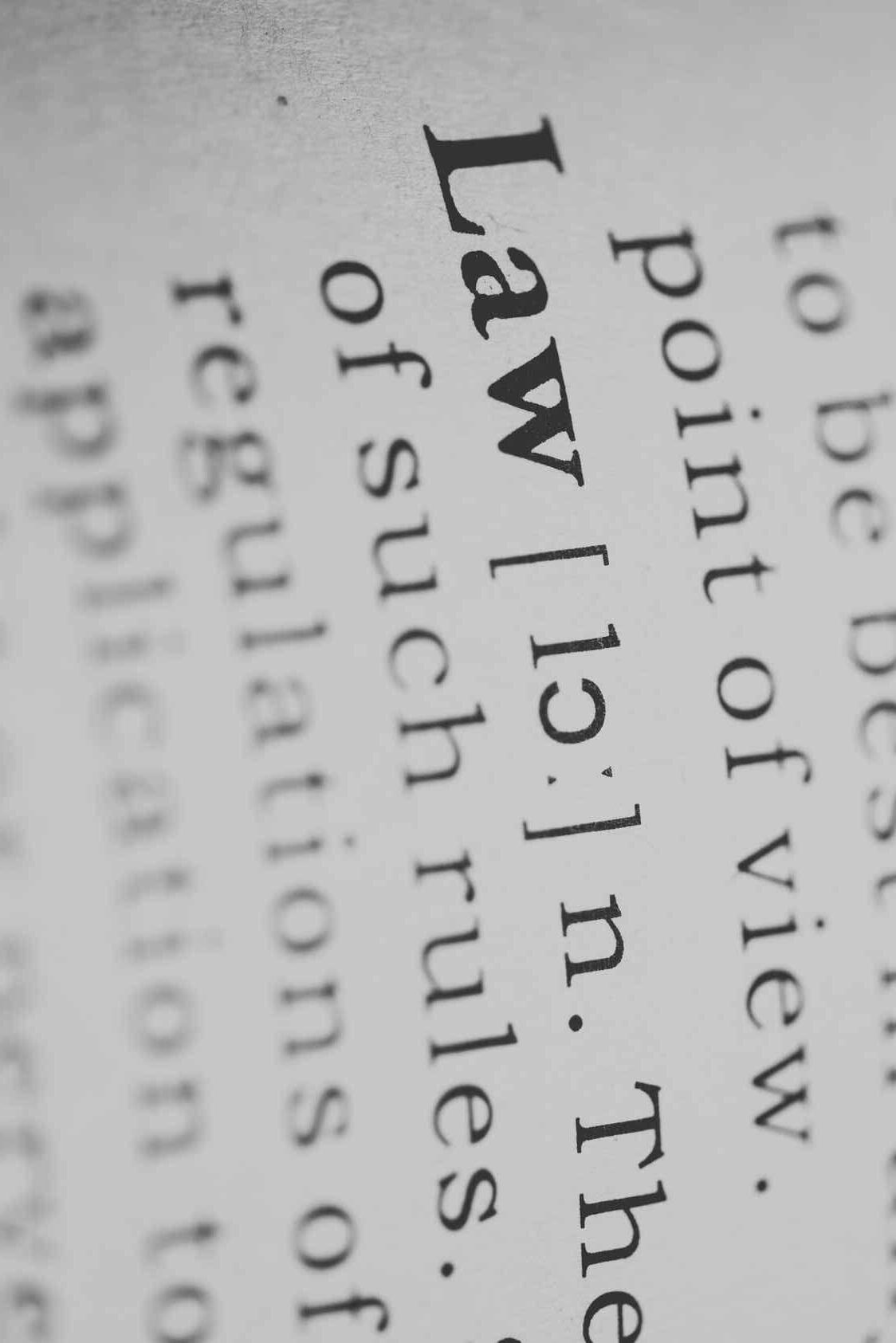

MATHEMATICS A-LEVEL

GO DOWN DEEP ENOUGH INTO ANYTHING AND YOU WILL FIND MATHEMATICS.
DEAN SCHLICTER
Course structure
Exam Board: Edexcel
Course code: Level 3 Advanced GCE in Mathematics (9MAO)
Assessment methods:
100% prescribed content Three equally weighted calculator papers covering Pure and Applied topics
Paper 1:
Pure Mathematics 1 (9MA0/01) Written examination: 2 hours (100 marks answer all questions)
Paper 2:
Pure Mathematics 2 (9MA0/02) Written examination: 2 hours (100 marks answer all questions)
Paper 3:
Statistics and Mechanics (9MA0/03) Written examination: 2 hours (100 marks, part (a) statistics, part (b) mechanics, answer all questions)
Why study Mathematics?
A-level Mathematics is amongst the most ‘marketable’ subjects for employers and universities alike Mathematics can combine with any other subject Many university courses insist on A-level Mathematics
Mathematics develops many transferable skills which enable young people to face the demands of further and higher education, as well as the demands of the workplace
Cognitive skills: Non-routine problem solving, decision making and reasoning Critical thinking ICT literacy
Interpersonal skills: Communication both written and oral Relationship building skills through teamwork, trust Collaborative problem solving - establishing and maintaining shared understanding
Intrapersonal skills: Adaptability; develops willingness to cope with the uncertain, handling work stress, adapting to different communication styles Self-management and self-development - ability to work remotely in virtual teams, work autonomously, be self-motivating and self-monitoring, willing and able to acquire new information and skills related to work
Where could Mathematics take me?
A-level Mathematics is essential or desirable for many university courses and careers including Physics, Engineering, Computing, Medicine, Accountancy, Economics, Business, Banking, Air Traffic Control, Retail Management, Surveying, Cartography, Psychology and, of course, teaching to name but a few
What do you need to complete the course?
You will need to purchase two text books each year This can be done through the school at the start of the course You will also need a more advanced calculator eg “Casio Classwiz”, which again can be purchased through the school in September
MEDIA STUDIES
A-LEVEL
Course Structure
Exam board: AQA Course code: 7572
Assessment:
2 exams worth 35% each, duration 2 hours for each:
Component 1
An in-depth study of the music industry, newspapers, radio and film industry and advertising
Component 2
An in-depth study of television, music industry, magazines, and online, social and participatory media and video games
Creating a cross-media production
This fascinating course enables students to study all aspects of the wide-ranging media industry, from film and marketing to journalism and gaming The production component is highly successful and allows students to have free choice regarding the type of media they produce, meaning they focus their efforts on an element that interests them The course complements most subjects, especially English Language and English Literature as well as Psychology and Sociology, due to the analytical skills that students will be developing Creative students taking subjects like Photography and Performing Arts have also gained transferable skills in the coursework production element
Why study Media Studies?
The media industry is arguably inescapable and reaches everyone across one platform or another The course provides an insight in to the world of media, and students find it extremely relevant to their daily lives Understanding the creative process and decision making behind the products and images we absorb daily, paints the world in an entirely different light.
Where could Media Studies take me?
For students who wish to study Media further, there are a number of excellent apprenticeships and degree courses in subjects ranging from Audio and Visual Media, Cinematography, Communication Design, Marketing, and Gaming Production It can also be combined with other subjects for Film, Journalism, Performing Arts or English-related subjects
The English Faculty is excited to newly offer the AQA A-level in Media Studies

I WAS GIVEN THE CHANCE TO EXPLORE AND DEVELOP MY MUSIC WITH THE ENCOURAGEMENT OF MY AMAZING TEACHERS.”
PERFORMING ARTS - DRAMA, DANCE, OR MUSIC PATHWAYS
CAMBRIDGE FOUNDATION DIPLOMA
Course structure
Exam Board: OCR
Course Code: 05772
Foundation Diploma = 15 A-levels
Units for all 3 Pathways:
Drama Units:
Dance Units:
Music Units:
Assessment Methods
There is no external written exam unit for these courses; you will be assessed through practical performances and portfolio You can only access the top grades in this course through practical work These courses are designed to suit all styles of learning and really will give you a practical experience within Performing Arts
Why study Cambridge Technical in Performing Arts?
These are highly successful courses, hence our introduction of the 3 separate pathways Our 2019 cohort achieved 83% top marks You will be able to use your experiences inside and outside of the course towards your grading, and you will have the opportunity to work with specialist practitioners and visit various venues, not only to experience shows, but get to understand how they are staged
Where could it take me?
This course would be an outstanding launch pad for anyone who is interested in taking Performing Arts at university In terms of careers, you could do into acting, directing, teaching, choreographing, performing or arts management

THIS COURSE WILL BE OUTSTANDING. YOU WILL GAIN A WIDE RANGE OF PERFORMANCE STYLES, VENUES, TRIPS AND PROFESSIONAL INTERACTION, IT IS A MUST FOR ANYONE WHO IS PASSIONATE ABOUT PERFORMING ARTS.
Course structure
Exam board: OCR
Course code: A-level - H556

EVERYTHING SHOULD BE MADE AS SIMPLE AS POSSIBLE, BUT NOT SIMPLER. ANYONE WHO HAS NEVER MADE A MISTAKE HAS NEVER TRIED ANYTHING NEW.” ALBERT EINSTEIN
Assessment methods
A-level: Paper 1: 2¼ hours External examination assessing content from modules 1, 2, 3 and 5 (Modelling Physics)
A-level: Paper 2: 2¼ hours External examination assessing content from modules 1, 2, 4 and 6 (Exploring Physics)
A-level: Paper 3: 1 ½ hours External examination assessing content from all modules (Unified Physics) A practical endorsement is internally assed and reported separately
Students will no longer sit AS Level exams in Year 12
Why study Physics?
Physics is one of the oldest academic disciplines and is the most basic and fundamental science Physics encompasses the study of the universe from the largest galaxies to the smallest subatomic particles It explores questions like How did the universe begin? How will it end? What is a black hole? Is time travel possible? It forms the basis of most modern technologies and holds the future to global well-being If you have an enquiring mind, always asking why things happen, then Physics will help you find the answers
Where could Physics take me?
The career opportunities available to a Physics student are vast As well as studying Physics at University it will play a vital part in Engineering, Architecture, Music Technology, Astronomy, Environment and Climate Control, Medical Physics, Communications, Geophysical Surveying & Computer Games Design to list a few
POLITICS A-LEVEL
Course structure
Exam board: AQA
Course code: 7152
Topics/Units:

Why study Politics?
Physics is one of the oldest academic disciplines and is the most basic and fundamental science Physics encompasses the study of the universe from the largest galaxies to the smallest subatomic particles It explores questions like How did the universe begin? How will it end? What is a black hole? Is time travel possible? It forms the basis of most modern technologies and holds the future to global well-being If you have an enquiring mind, always asking why things happen, then Physics will help you find the answers
Where could Studying A-Level Politics take me?
Studying A-Level Politics provides valuable skills for critical analysis, communication, and debate These skills are highly regarded in fields like law, journalism, public relations, international relations, and social research Many students go on to study Politics, International Relations, or related subjects at university, leading to careers in government, nonprofits, business, or public service
POLITICS IS TOO IMPORTANT TO BE LEFT TO POLITICIANS.
WARREN RUDMAN

PSYCHOLOGY A-LEVEL
Course structure
Exam board: AQA
Course code: 7181
Assessment methods
3 x written exam (2 hours each) with a selection of multiple choice, short answer questions, and extended answer questions
Formal internal mock exams No coursework but continuous lesson assessment via exam style questions/essays
Why study Psychology?
Ever wondered why you find certain people attractive but not others? Why good people do bad things? Why you dream at night and what it means? Or whether it really is possible to hypnotise someone or accurately ‘profile’ a serial killer? Well if you are someone full of similar questions, then psychology is for you Quite simply it is the fascinating, intriguing and often enlightening study of human thought and behaviour, and we seek to make sense of human nature from four traditional perspectives (biological, cognitive, behavioural and psychodynamic) But studying humans as a human oneself is no mean feat, and you will also acquire a good grounding in research methodology, ethical issues, and data analysis as you search for accurate ‘proof’ and understanding of both others and yourself
Where could Psychology take me?
Where won’t it take you? The study of human thought and behaviour is relevant to all courses and careers where you will inevitably have some dealings with other human beings! Furthermore, as it is equally rooted in both the arts and science/maths you will be well equipped for a wide range of future possibilities Professional psychologists work in all manner of environments, including advertising, sport, education, the military and the NHS However, many professions and industries now recognise the importance of psychology as a key factor in improving performance and well-being, and it is thus a highly desirable and adaptable qualification to have
RELIGIOUS STUDIES A-LEVEL
WHETHER ONE BELIEVES IN A RELIGION OR NOT, AND WHETHER ONE BELIEVES IN REBIRTH OR NOT, THERE ISN’T ANYONE WHO DOESN’T APPRECIATE KINDNESS AND COMPASSION
DALAI LAMA

Assessment methods
2 x 3 hour external exam at the end of the course of study.
Assessment via descriptive, evaluative and synoptic essay writing
Formal internal mock examinations No coursework, but continuous lesson assessment via essay
Why study Religious Studies?
Religious Studies is one of the most valuable subjects to study in the tumultuous and diverse society that we live in today It is a highly regarded academic discipline that challenges and questions the essence of humanity It uses and promotes higher level skills of critical analysis and reasoning to examine questions that have puzzled humans for centuries It enables young people to develop their skills of evaluation alongside an understanding of morality, tolerance and diversity We can’t promise answers, but we can promise an extremely enjoyable and challenging subject!
Where could Religious Studies take me?
Religious Studies can take you just about anywhere! Religious Studies is highly regarded amongst higher education institutes and leads naturally to a degree in any humanities subject, as well as Law, Journalism or the Social Sciences It is favoured by professions such as the Police Force, the Armed Forces and the Caring Professions, as well as those who study the subject purely for personal interest
THE TASK FOR SOCIOLOGY IS TO COME TO THE HELP OF THE INDIVIDUAL. WE HAVE TO BE IN SERVICE OF FREEDOM. IT IS SOMETHING WE HAVE LOST SIGHT OF.” ZYGMUNT BAUMAN
SOCIOLOGY A-LEVEL

Course structure
Exam Board: AQA
Course Code: 7192
Options from:
Assessment methods
3 x written exams (2 hours each)
Ongoing class assessment
Formal internal mock exams
Why Study Sociology?
What are the dark figures of crime? What is an undiscovered crime? What makes people deviate from normal behaviour? What is our education system all about? What is the point? What goes on behind the scenes in a school?
Intrigued by any of these questions? Do they raise more questions for you? If you have an interest in humans and society - this is the course for you!
Where could Sociology take me?
Anywhere! It is a demanding and rigorous course that will give you many skills both academically and socially for the next stage of your life Sociologists work in all aspects of life, policing, research, teaching, medicine, politics, civil services and the NHS, to name just a few
The skills you will learn together with your insights into the workings of society will be highly relevant whether you go onto further education, college, apprenticeship or employment It is highly adaptable and highly sought
SPANISH A-LEVEL
Course structure
Exam board: Edexcel
A-level: 9SP0
All assessment is by end of course exam Core topics covered are La evolución de la sociedad española, La cultura política y artística en el mundo hispanohablante, La inmigración y la sociedad multicultural Española and La dictadura franquista y la transición a la democracia”, as well as a core Grammar content There are also two literary elements, studying a significant spanish film and a spanish novel
Assessment methods:
Students have individual control of listening material on MP3 players. All questions are in Target Language, focusing on the 4 core themes
Paper 2: Written response to works and translation: 2 hour 40 minute exam, 30% of overall mark 120 marks
Based on the texts and films studied in the Target Language Students answer a translation task and two questions from a choice and are expected to write around 600 words in total Answers will require a good level of critical appreciation
Paper 3: Speaking
Around 21 minutes, 30% of overall exam 72 marks 5 minutes preparation, discussion of a stimulus card based on one of the 4 themes (6 mins), student presentation of an independent research project, then general discussion of the research project (10-11 mins)
Why study Spanish?
Spanish is becoming increasingly popular as businesses develop links in different areas of the World and Spanish is spoken world wide and you never know when these language skills might be of use to you The skills you learn in your Language lessons will be useful in many other subjects; you learn how to construct essays, you learn how to form balanced opinions and you are asked to think about things in a different way
Where could Spanish take me?
The possibilities with Language learning are virtually endless Many university courses can have a language element attached to them and this will give you the fantastic opportunity to spend a year abroad
Speaking another language to a higher level is becoming increasingly important to employers, and can be a doorway to a range of jobs, from aid work to International trade!
Set texts: Hodder Edexcel Textbook - ISBN 9781471858314
Set texts to be confirmed
TENGO UN DÍA. SI LO SÉ APROVECHAR, TENGO UN TESORO I HAVE ONE DAY, IF I KNOW HOW TO MAKE THE MOST OF IT, I WILL HAVE STRUCK GOLD GABRIELA MISTRAL
SPORT
LEVEL 3 OCR
CAMBRIDGE TECHNICAL FOUNDATION DIPLOMA IN SPORT AND PHYSICAL ACTIVITY
Course structure
Extended Diploma = 3
A-levels Diploma = 2
A-levels Foundation Diploma = 1.5
A-levels Exam board: OCR
Course code: 05828

Assessment methods
Core Text required:
Cambridge Technical Level 3 Sport and Physical Activity
Author: S Bointon, H Bray, S Chapman, J Martin, A Myatt, A
Short ISBN: 9781474857 Publisher: Hodder Education
HOW TO APPLY
Applications to Melksham Oak Sixth Form should be made via our Applicaa One platform Current year 11 students will be emailed a link to create their login and complete the form. External students can apply through Applicaa one, visit: https://melkshamoakapplicaacom/year122026
Applicants will possibly be called to interview during term 3 & 4 and offers may follow for suitable candidates
Applicants are expected to keep us informed should they decide not to fulfil their place out of simple courtesy Should applicants wish to change a subject choice, this will be possible, even after GCSE results have been received, as long as there are still places on the course the student wishes to change to and they satisfy the relevant entry criteria This can be done by submitting the online Subject Option Change Form which can be found via the 6th Form tab on the Melksham Oak Sixth form page
WHAT TO DO NOW PLEASE NOTE
Ask your current subject teachers for their opinion on your suitability This is part of the Application Form completion process
Speak to existing students, friends in the Sixth Form, or possibly family members who are already on the courses you are interested in
Check that the combination of subjects you are thinking of is suitable for any future plan you might have. If you need help with this, talk to a Careers Advisor or member of the Sixth Form Team
Fill in the application form ahead of the closing date specified on it, so that you have time to ask for help if there is anything you don’t understand Your tutor will be able to point you in the right direction if you’re not sure who to go to for particular help
We are able to offer an increasingly wide range of subjects However, occasionally each year some courses may not run or some option choice combinations may not work due to timetabling clashes
We cannot guarantee which subjects will run until the options blocks are designed following the application deadline We do this so that each year we can design option blocks around student choice to provide as many as possible with their preferred options Applications need to be made to Melksham Oak Sixth Form College.
All applicants are strongly advised to base their subject choices on what they need/want post 18 and not other factors that may change anyway across the course of the two-year 6 form journey eg What friends are doing, staffing etc 6th form choices need to be right for you and your individual long-term plan.
To make the right choices for you, talk to those you trust, both in school and out Tutors, 6th form leaders, and subject specialist teachers are all here to support you in making your application Take a look at jobs/apprenticeships/university courses you may be interested in and then work backwards to see what subjects are needed.
HERE IS A SIMPLE CHECKLIST TO HELP YOU TO MAKE THE RIGHT DECISIONS:
MAKE SURE YOU STUDY THE SUBJECT PAGES AND UNDERSTAND WHAT EACH SUBJECT ENTAILS EG. ASSESSMENT AND SUBJECT CONTENT. OUR OPEN EVENING WILL BE IN NOVEMBER. IT WILL BE ADVERTISED LOCALLY, SO PLEASE KEEP A LOOK OUT
MAKE A LIST OF SUBJECTS YOU MAY BE INTERSTED IN.
QUESTIONS TO ASK OF YOURSELF:
WHICH SUBJECTS DO I LIKE? WHICH SUBJECTS AM I GOOD AT?
WHICH SUBJECTS DO I NEED FOR THE CAREER I HAVE IN MIND?
ARE THERE NEW SUBJECTS THAT I SHOULD CONSIDER?
AM I BEST SUITED FOR ACADEMIC OR APPLIED/VOCATIONAL QUALIFICATIONS?
BUILDING TOWARDS ADULTHOOD
We recognise that our students need more for their development than just their subjects We provide a range on non-course related activities to support growth towards successful adult life
In this program we include Leadership opportunities for all Year 12 students. These include Head Boy/Girl, House Leaders, Charity and Fund-raising team, Student academic and peer mentoring, Club Leaders, and Duty support
We also ask all students to complete one term of volunteering.
They are asked to find a local opportunity where they dedicate one hour a week of their time We run a weekly mental health program during one tutor to support students in relfecting and self-regulating, as well include occasional quiet meditation sessions and gentle pilates. In addition we also have our legendary Friday Fun were we play games, run quizzes, go outside for sports, and anything else we can think of to let off some steam at the end of the week


SUPPORTING SUCCESS
DEVELOPING LEADERS OF THE FUTURE
All sixth form students are required to be actively involved in some form of student leadership within the school These roles range from house leadership to acting as a subject ambassador or leading community-based projects
Every student in the sixth form will be allocated to one of the four houses. The house system was set up with three key strands in mind: attainment, leaders hip, and competition In the sixth form, there are opportunities for students to become a head of ho use or deputy head of house. Students in these positions will lead on a range of activities, including assemblies, mentoring, interviews, and competitions that support the development of our whole school values of respect, ambition and pride.
A range of competitions run throughout the year for staff and students so they can gain points for their houses and win the coveted house cup, with the final events of the year being the sports days and house relays
OUR ASPIRE PROGRAMME SUPPORTS ALL
Each student is placed in a tutor group which meets every morning to take part in the personal development programme Sixth form tutor groups are made up of year 12 and year 13 students, which encourages a greater mix between students from both year groups and helps them share experiences
The tutors are key figures and play an important role in supporting students academically and pastorally, while students also follow a programme of tutorials that provides additional academic and pastoral support and challenge.
The personal development programme is delivered during assemblies, study skills sessions, and tutor sessions, as well as events run by external speakers. Some of the topics covered include:
Developing Employability Skills
The World of Work
Safe Driving Awareness
Health and Well-being
Cooking on a Budget
Personal Finance
Effective Interview Techniques
Critical Thinking
Personal Safety, Including E-safety
CAREERS ADVICE AND GUIDANCE FOR UNIVERSITY AND OTHER POST-18 OPTIONS
Melksham Oak Sixth Form students our supported by our experienced Careers Leader Careers guidance sessions are available one to one and small group to ensure that all students are supported with making appropriate choices for Post 18 destinations
This could include University applications through UCAS, writing personal statements, and interview practice, as well as apprenticeship applications Year 12 students also take part in a UCAS convention day in term 3 and receive continued support through a series of additional sessions back in school to further their post-18 planning
We regularly arrange talks for our sixth form students, with outside speakers including employers and apprenticeship, gap year, and internship providers
All our year 12 students undertake a week’s work experience in a field that they have direct interest or career aspirations in The students are supported in seeking this work experience, but it is their responsibility to make the initial contact, as this is a valuable experience in its own right




